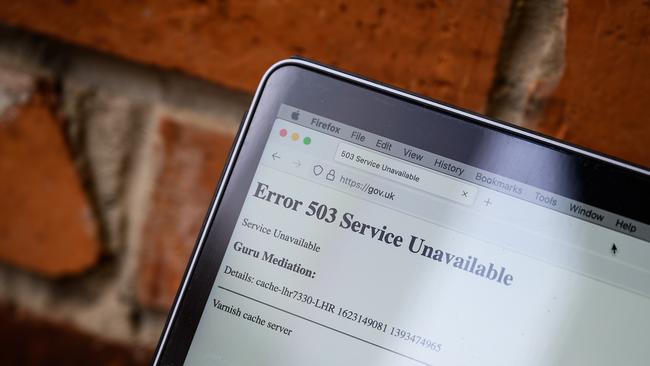Mass web outage highlights Australia’s foreign internet server dependencies
Tuesday’s mass web outage has triggered questions over foreign service providers, as local businesses lost tens of thousands of dollars.

Tuesday’s late night mass internet outage calls into question Australia’s dependence on foreign service providers, experts say, after internet users across the country were unable to access news websites and social media websites including Reddit and gaming service Twitch.
The Fastly CDN outage lasted over an hour, costing some local businesses an estimated tens of thousands of dollars in lost income according to Marcus Thompson AM PhD, a retired Army officer and former Head of Information Warfare for the Australian Defence Force, who said the incident demonstrated the importance of Australia’s digital sovereignty.
“This was a technical outage, rather than a cyber attack, yet the effect on Australian businesses and people was the same,” Dr Thompson said.
“It calls into question our dependence on foreign service providers.
“We need to look closer to home for how we connect to the digital world around us. Australia has some of the greatest data and security skills in the world – the cost of not using that in terms of security and economic value is staggering.
“The government’s Security of Critical Infrastructure (SOCI) legislation couldn’t be more timely and important to drive this – and bring our data – home.”
The mass web outage across several websites was the result of a misconfiguration, according to Andy Champagne, senior vice president of CDN provider Akamai, who said there could have been an error in a file or something as simple as a typo made by someone managing the system.
“It is also our understanding that people were getting [503] errors returned very quickly, which is an indicator of a service being unavailable, versus a cyberattack. In an attack it usually takes some time for the consumer to see an error,“ he said.
“What people experienced today is just another reminder of how the internet is a lifeline for consumers and for businesses, and we have come to count on it being reliable and available to us when we need it.”
Dr Klaus Ackermann, Associate Professor at the Monash Business School‘s Department of Economics, said however that businesses should look to solutions other than CDNs to prevent a similar outage from happening. He recommended businesses look into interruption insurance as a safeguard against a loss of income.
CDNs are geographically distanced networks of servers that help minimise delays in loading web page content, by reducing the physical distance between the servers and users.
“If issues like this are to be prevented in the future, businesses need to be willing to invest in setting up their own distributed servers to reduce the ‘ping’ speed from a customer to a server,“ he said.
“The investment is well worth it to optimise the customer experience and engagement. If you have a better ‘ping’, the higher the chance of people staying on your website and making a purchase for example.”
He said that for a business, having distributed servers – like a CDN – can be the difference between a website loading in 160 milliseconds, or 10 milliseconds.
Fellow Monash Associate Professor Carsten Rudolph said that while the incident likely wasn‘t caused by a malicious attack, it’s still important for people to be aware that servers like Fastly are still susceptible to technical faults and misconfigurations.
“These types of reliability issues can potentially result in financial losses and point to the need for a proper risk analysis,“ he said. ”Businesses need to understand exactly what services and infrastructures they rely on. Even if these services promise high stability and redundancy, it is always possible that one or even several could fail and businesses need to plan for these outages and have contingency actions in place, if the risk becomes too high.”
Adam Cassar, co-founder at leading Australian CDN provider Peakhour.io, said the business impact of outages in the post Covid-19 era had only intensified with e-commerce revenue increasing by over 100 per cent, as consumers spend more time online.
He said media and e-commerce sites rely on fast load times and constant availability across the globe, and that’s why they go to a CDN in the first place.
“Outages happen and businesses must prepare for it. Every disaster recovery plan requires the ability to switch to alternate providers in the case of an outage,” he said.
“This is achieved with cloud hosting providers using availability zones and can be achieved with a CDN using DNS. Reliance on a single cloud provider for CDN and security puts you at their mercy for any outage response.”
“Having a backup contract with other providers in case things go wrong can help site owners quickly recover when outages occur. Some providers offer usage based billing – so having a second provider ready to go won’t be a large financial hit.”



To join the conversation, please log in. Don't have an account? Register
Join the conversation, you are commenting as Logout